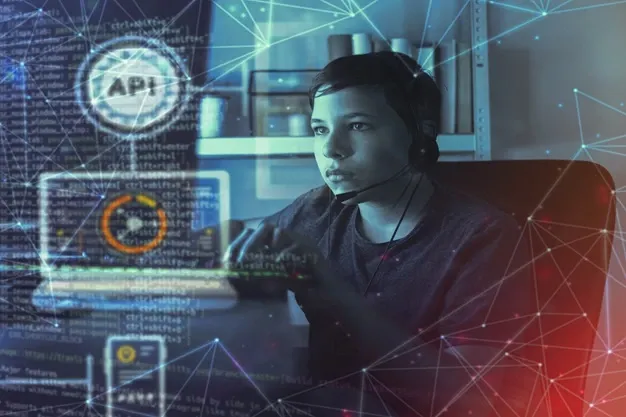The Impact of AI on the Future of Education and Learning
Updated: 20 January 2026, 2:58 pm IST
Artificial Intelligence (AI) is the new revolutionary trend in the market that everyone is obsessed with. Some love it, some despise it, and some wonder: “What is it?” If you too belong to this category of the audience and wonder what AI does, we will help clarify your doubts in this blog. Here, we discuss the meaning of AI, the impact of AI on education, and AI tools that can be used in the education sector.
Get Complete Details From Expert
What Is AI?

AI, the popular acronym for Artificial Intelligence, refers to a set of technology that enables machines or computers to simulate or mimic human intelligence. They can perform several functions such as understanding or translating text, analyzing data or images, writing stories or computer codes, making recommendations, and recognizing speech.
Have you ever tried contacting a company on their website? The majority of the time, an AI bot will take your details and then make a decision if you require more help from a human customer care executive or not. Do you own Alexa or Google Assistant devices - the AI-powered virtual assistants?
AI is improving day by day and getting better. It is gradually dominating all industries. The education industry is equally welcoming AI with open arms. Let's check out how AI impacts the education sector.
Impact Of AI On Education

The impact of AI on education is huge. AI has a big impact on students as well as teachers. Here are a few benefits of AI on the future of education:
1. Personalized lesson plans: AI can help provide customized lesson plans for individual students as per their individual needs by analyzing their strengths, weaknesses, and preferences. This personalized lesson plan helps improve student efficiency, enhances engagement, and boosts confidence among students.
2. Customized feedback: AI can also provide customized feedback to students and identify knowledge gaps. This can help improve the learning experience for students.
3. Grading assessments: AI can also help in grading assessments and can reduce the workload on teachers. Teachers can then lay their focus on planning and preparing lesson plans.
4. Intelligent tutoring: AI tools can serve as tutors for providing intelligent tutoring to students. In this case, AI creates individual lessons based on the support that the student needs. They can also adapt to the learning pace of individual students.
5. Assistive technology: Assistive technology is helpful in the case of students with special needs. There can be different types of AI assistance provided to students according to their disabilities. AI can convert text into speech for visually impaired students or convert speech into text for those with hearing impairment. AI can convert textbooks to audiobooks or adjust the font size as per the student's requirements.
6. Administrative duties: AI can perform administrative duties for teachers and reduce their workload. This allows them more time to focus on other important tasks more suitable to their role.
7. Gamification: Game-based learning is immensely helping students by increasing engagement and improving focus. Game-based elements such as leaderboards, reward systems, and badges make students more productive.
Also read:- The Future is AI
AI Tools Used In Education

There are numerous AI tools used in the education industry nowadays. We will discuss a few of the tools and their uses here:
1. OpenAI: This tool offers a range of options for everyone. ChatGPT is one such tool that can write essays, blogs, resumes, or assignments in a jiffy. It is good for brainstorming ideas too.
2. Coursera: Coursera is an open, online learning platform that offers numerous courses from around the world to choose from. Some are paid while most are free. It has courses from top universities and companies that can help you gain professional certifications from the comfort of your home.
3. Turnitin: Turnitin is a software that helps students and teachers in detecting plagiarism. It has a vast database of academic content to compare and provides detailed reports to teachers.
4. Grammarly: Grammarly is an AI-powered software that checks for grammatical, spelling, or punctuation errors in your writing. It is a helpful editing tool for assignments.
5. Syntea: Syntea is an AI teaching assistant developed by the IU International University of Applied Sciences. It provides assistance to students by helping with assignment preparation and academic support.
6. Copyscape: Copyscape is another plagiarism-detection tool helpful to students as it ensures that the text is original and not plagiarized.
7. Tutor.ai: Tutor AI is an AI-powered tutor for students. Students can receive help from qualified tutors from the world over and receive professional assistance for their assignments or grades.
8. Notion: Notion is another AI-powered workspace that allows you to take notes and manage tasks or projects. It helps in task management and project planning.
9. QuillBot: QuillBot works similarly to Grammarly. It helps to paraphrase sentences and detect grammatical errors in assignments.
10. Magic School: Magic School is an AI software built for schools to prepare lesson plans, complete assessments, and facilitate communication.
Challenges In Implementing AI
AI is a very powerful and helpful tool that can help us save time. However, you should be careful while using AI tools as they are still in the development phases and can pose a set of challenges and risks:
- Ethics: AI can pose ethical concerns such as security, plagiarism, and privacy.
- Quality: AI can churn out content in a matter of seconds. But, whether it is of good quality remains to be answered.
- Accuracy: Do you think AI provides you with 100% correct data? Not always. It is still learning and can sometimes provide inaccurate information.
AI is helpful, however, it should be used carefully and ethically. You should always double-check the data from reliable sources. If used correctly, AI can be a big help to the education industry globally.
Take the next step in your career ?
Conclusion
With the rapid spread of AI in the education sector, its positive impact has already been felt, and more is awaited to be seen in terms of its role in the future of learning. Tapping into its vast potential, several universities in India are offering remote learning to students in the comfort of their homes, bringing easy access to top-class faculty from around the world.
Amity University Online offers a range of undergraduate and postgraduate courses to students globally. Our online courses are recognized by employers the world over. Our degree courses are approved by the AICTE and we are the first Indian university to receive UGC approval for Online Degrees and Learning Platform.
Amity provides ebooks, printed books, audiobooks, and video materials to enhance your learning process. Our expert faculty and AI-powered Professor AMI make your learning journey smooth. We inculcate AI-powered tools to enhance your learning experience. You can take a metaverse tour of our Amity campus. We don't focus only on your learning journey with us but we also strive to get you a good job by assisting you in resume building, placement assistance, and job interview preparation. It's the best time to enroll in our programs. Check our website for further details.
Know More About Our Online Programs
Check Out Our Top Online Degree Programs
frequently asked questions
What is the role of AI in education?
+AI has an important role in the education industry. It helps in: 1. Making personalized lesson plans 2. Providing customized feedback 3. Reviewing assessments 4. Predicting knowledge gaps 5. Intelligent tutoring
How does AI facilitate personalized learning?
+AI can facilitate personalized learning by creating individual lesson plans according to each student’s learning requirements. AI can eliminate knowledge gaps and focus on individual student needs.
What AI-powered tools are commonly used in education?
+The most commonly used AI-powered tools in education are: 1. OpenAI 2. Coursera 3. Turnitin 4. Grammarly 5. Notion
How can AI improve teacher effectiveness?
+AI provides immense help to students as well as teachers. AI can act as a teaching assistant and help in grading assessments, which reduces the workload on teachers. This in turn improves their efficiency.
How can AI help students with special needs?
+AI can help students with special needs too by assisting in: ~ Creating customized lesson plans as per the student's needs ~ Offering assistive technology such as speech-recognition software ~ Converting textbooks into audiobooks or adjusting font size in texts
What is the role of AI in online education?
+AI plays a huge role in online education. It creates customized lesson plans and helps in grading assessments.
What are the challenges of integrating AI into education?
+Some of the common challenges of integrating AI into education are: 1. Ethical issues 2. Data privacy 3. Data transparency 4. Confidentiality 5. Ownership of content

